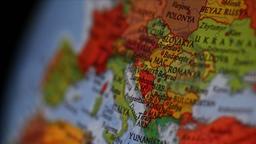
Enlargement used to be the superpower of Europe. It was like the reverse of migration – instead of individuals leaving their countries and moving to Europe, it moved Europe to them. If your country accepted the Acquis, Europe was telling you that it was going to help transform your country into a European version of itself. This was a kind of empire building by consent. Then Europe lost both its interest and its ability to transform its neighbors.
Not anymore. The Green Deal Ursula von der Leyen announced in December 2019 as the “jobs and growth agenda of Europe” renews Europe’s transformative power. That’s what I see when I look at the Carbon Border Adjustment Mechanism (CBAM), the due diligence law and all new standard setting activity for different products.
This is especially the case for Turkey, mind you. The Turkish accession process was stalled. Yet the Customs Union (CU) between the EU and Turkey worked wonders in transforming Turkey. This trading arrangement, however, is based on the 1963 Ankara agreement, and has been in urgent need of an overhaul.
In 1995, Turkey had a trade deficit of about $5.1 billion as it was selling mostly textiles, clothing and agricultural products to the EU (exports were at $11.9 billion, whereas imports were of $17 billion.) Today, Turkey is exporting vehicles, machinery and equipment to the EU as well as textile and agricultural products. Turkey has a $6 billion trade surplus, with exports at $79.6 billion, whereas the imports to EU were at $73.6 billion. Have a look at the graphs below for more details.
That’s what I mean when I talk about the transformative power of the EU in Turkey. The CU has transformed Turkey into an industrial country. This is not only a country where the ballot box, against all odds, is still doing its job properly, but also an industrial country that can generate more inclusive growth.
The EU today could play a larger transformative role in Turkey by modernizing the CU. Turkey needs European FDI to achieve the green and digital transformation to upgrade its international competitiveness. Yet due to rule of law violations and the severe operational problems of the judiciary, as well as democracy and human rights issues, FDI is in negative territory for the first time in twenty years.
This is especially concerning since Turkey needs massive investment to decarbonize. Seeing CU modernization as a decarbonization agenda for Turkey is about bringing the transformative power of the EU back, if you ask me. Consider the geopolitical consequences of the Green Deal and think about a stronger and greener Turkish economy as the machine to transform regional countries, especially the oil producing ones.
Look closely, and the Green Deal is CU modernization, or rather, CU modernization is adapting Turkey to the Green Deal through its twin transformation engines, one green and the other digital.
Note that Turkey is also the only Muslim-majority country where pluralism still matters. Muslim countries do not need trenches, but more pluralism to become part of globalization. Two decades after 9/11, that is truer than ever before. The American invasions of Afghanistan and Iraq, as well as the subsequent nation-building efforts, have ended in colossal failure. Salafi radicalization is a far stronger force in the world today than two decades ago. Integrating the Muslim world into the global economy is all the more important in this context. As Olivier Roy noted years ago, this is a “war for Muslim minds” especially in Muslim-majority countries. Here lies the task ahead for the transformative power of Europe, if you ask me.








